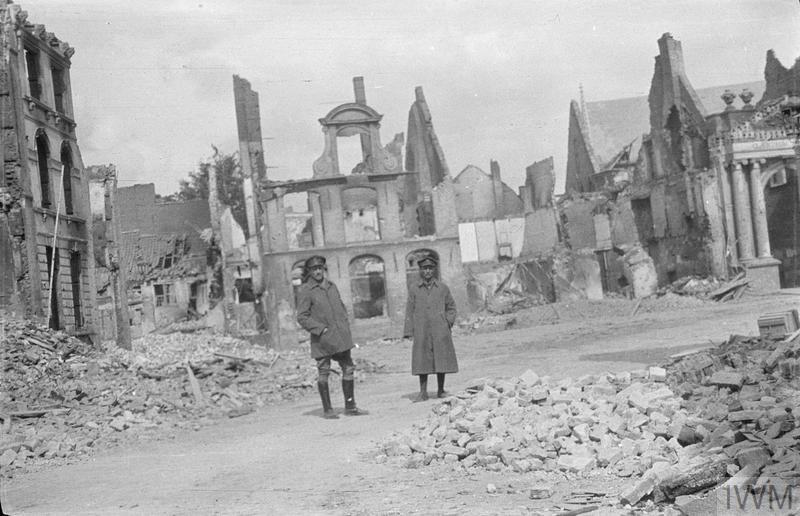Written by Mark Connelly
Every now and then a book comes along that meets truly the hyperbole of blurbs and testimonials found in reviews and adorning dustjacket covers. For me, one of those texts is Paul Fussell’s The Great War and Modern Memory. First published by Oxford University Press in 1975, it has achieved something rare for an academic text: global fame and global notoriety. His argument that the Great War ushered in irony as the dominant mode of modern discourse was ever-present set people talking, thinking and writing, some furiously, others ecstatically. My first engagement with it was as a teenager and through the lenses of others. The first was provided by an English teacher at school who, on finding out about my interest in the First World War, urged me to read it. With the persistence of a Great War general hammering away at a strongpoint regardless of cost, he kept returning to the recommendation. I noted his enthusiasm and realised there was something special about this work, but I had a pile of other war books to get through including Wyn Griffiths’s Up to Mametz and the diaries of Edwin Campion Vaughan published under the title Some Desperate Glory. My next encounter with it came at Christmas when my parents indulged me with another pile of First World War books as presents. Among them were two other seminal texts (if you’re unlucky, I’ll write about those in another blog!), John Terraine’s The Smoke and the Fire and The White Heat. Reading The Smoke and the Fire was epiphanic (that’s a great word, isn’t it?). I went from being a full-blown Joan Littlewoodite to a full-blown revisionist in one move. And of course, a significant casualty was my open-mindedness about Fussell. This Fussell chap now looked distinctly suspect and out of his depth. As Bertie Wooster might have said, ‘Fussell can eat cake as far as I am concerned’, and that was him struck from my reading list.
I did not really engage with him until my undergraduate third year special subject on the First World War and its representation in English literature and art. I was still proudly of the Douglas Haig was an educated soldier, don’t you know, kind of chap, but Fussell enchanted me. He seemed to have so much right; he was so insightful, so clever, so blooming brilliant in so many ways. And yet there was something wrong with it. The claims were too big, the statistics too easily flung around, and, crucially, I began to realise that the pool of material might have been deep, but it wasn’t very wide. Having shifted my position somewhat, I was then caught by the critique put forward by Robin Prior and Trevor Wilson in a very early edition of War in History. In fact, their article was not so much a critique, nor even a trial in open court. Instead, it was much more of a punishment squad dragging the text into a dark alley for a savage beating. Relentless in its onslaught, it accused Fussell of failing to understand the nature of the conflict on the Western Front on every level. Next stop for me was a PhD. Researching that exposed me to a welter of material in which people found meaning in the war, found comfort and solace in believing the cause was just, found a reason to be proud despite their pain. In achieving this insight, I cast Fussell aside as someone who had been fooled into taking the testimony of a few as the voice of the many.
This made Fussell a bit of an Aunt Sally, an easy text to shove into the stocks or pillory. Of course, and by the same token, it was utterly impossible to ignore him. As I had to read and re-read his text for both teaching and research, I was dragged back into considering it purely on its own merits. And this took me back to the genius of the piece. Once Fussell’s standpoint is accepted as valid, but contextualised against wider perspectives, the brilliance and originality of his approach becomes startingly obvious. The chapter titles alone are works of genius in their wit and provocation. Fussell created a perfect theatre of war made up of beautifully-crafted individual scenes to make a powerful, penetrating analysis and propose a fascinating thesis. Everything Fussell states is robust and has validity when the nature of his authors and their audiences is considered. The trick with Fussell is to remember that he opened up a field of enquiry, but in doing so he concentrated on a few voices in massive chorus. Subsequent research by a range of scholars has allowed us to hear the voices of those other singers. Fussell was not wrong. His soloists just needed to be joined by the choristers. To use a cliché, when it comes to Fussell, don’t throw out the baby with the bathwater.
Mark Connelly is Professor Modern British History and Head of the School of History at the University of Kent. His recent publications include The British Army and the First World War (with Ian Beckett and Timothy Bowman), and Ypres (with Stefan Goebel). Later this year, his book Pilgrims in a Barren Land: visiting the battlefields of the Western Front, 1914-1939 will be published by McGiill-Queen’s University Press.
Image Credit: The Second Battle of Ypres, April-May 1915. ©IWM Q 56727, Licence: IWM Non-Commercial Licence

